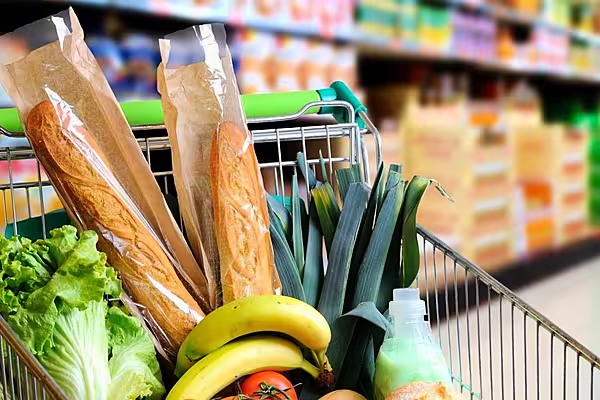British grocery inflation hit 5.9% in April, its highest level since December 2011, forcing shoppers to seek out value, increasingly at discounters Aldi and Lidl, industry data showed on Tuesday.
Market researcher Kantar said prices are rising fastest in markets such as dog food, fresh lamb and savoury snacks, while falling in spirits.
It said the average UK household will now be exposed to a potential extra £271 ($345) per year.
"A lot of this is going on non-discretionary, everyday essentials which will prove difficult to cut back on as budgets are squeezed. We’re seeing a clear flight to value as shoppers watch their pennies," said Fraser McKevitt, Kantar's head of retail and consumer insight.
'Surging Prices'
Surging prices are causing the biggest squeeze on UK household incomes since at least the 1950s and consumer confidence is at near record lows.
Britain's overall inflation rate hit a 30-year high of 7% in March and is expected to peak at nearly 9% later this year.
Kantar said German-owned discounter Aldi was Britain's fastest growing grocer over the 12 weeks to April 17, with its sales up 4.2% year-on-year, closely followed by rival Lidl, which was up 4.0%.
Over one million extra shoppers visited Aldi and Lidl respectively over the period compared with the same time last year.
Both achieved record-breaking market shares, with Aldi holding 8.8% and Lidl at 6.6%.
Unlike their bigger rivals the discounters are still opening new stores.
Kantar said total grocery sales fell 5.9% over the 12 weeks year-on-year.
Sales Decrease
For the first time since the COVID-19 pandemic began sales were also in decline by 0.6% compared with two years ago, as the period now includes the start of the first lockdown when only essential shops like grocers were allowed to open.
Of Britain's big four grocers only market leader Tesco gained market share over the 12 weeks.
While Tesco's sales fell 4.8% year-on-year, sales at Sainsbury's, Asda and Morrisons were down 7.7%, 10.3% and 10.5% respectively.
Price Cuts
On Monday, Asda and Morrisons said they were cutting the prices of key items.
Kantar also noted that the war in Ukraine has increased public awareness of supply pressures and there was evidence of stocking up as consumers prepared for limited availability.
It said sales of sunflower oil and vegetable oil were up 27% and 40% respectively over April.
Several grocers, including Tesco, are now rationing cooking oil.
News by Reuters edited by Donna Ahern Checkout. For more Retail stories click here. Click subscribe to sign up for the Checkout print edition.





